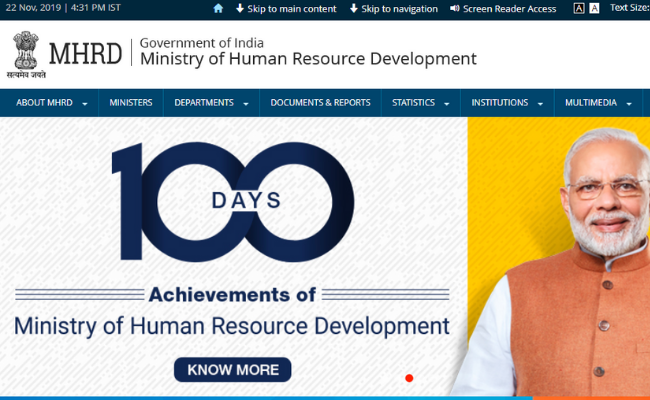
According to the recommendations of the draft National Education Policy (NEP) committee, the Human Resource Development ministry has determined to modernize the evaluation process by doing away with school examinations from 2021. The fresh evaluation module which will stress on class-based assessments and follow the ‘5-3-3-4’ structure, affirmed an HRD official.
The government shall be examining all opportunities to finalize the National Education Policy by October 2020, and the courses which shall be implemented from 2021. “We shall soon notify the boards for their advice on the new exam structure recommended by the committee. Following the suggestions from the boards and education experts, the ministry will consider to junk 10+2 format and to proceed on the proposed evaluation process from 2021,” the officials.
The outline made by National Education Policy (NEP) committee in June upheld the 5-3-3-4 design comprising five years of foundation stage (three years of pre-primary school and classes one and two), three years of preparatory stage (classes three to five), three years of middle stage (classes six to eight), and four years of secondary stage (grades 9 to 12).
Get more details on the official website, https://mhrd.gov.in/ .
Adding to this, it was also proposed in the new structure on the lines of an international school-based evaluation process, which assesses a student based on their class-based performance. The committee also noted that the current board examinations forced a student to concentrate only on a few subjects without presenting scope to learn in a developmental manner, which ultimately causes stress among students.
So, to track students’ progress throughout their school experience, the latest policy proposes State Census Examinations in classes three, five, and eight. Moreover, it recommends restructuring the board examinations to test only focus concepts, skills, and higher-order capacities. These board examinations will be on a range of subjects. The students shall choose their topics, and the semester when they want to take these board exams. These board examinations shall substitute the final school examinations,” the committee recommended.
Also, they are considering extending the ages of free learning under the Right to Education (RTE) Act from 14 years to 18 years. “As proposed by the draft NEP committee, the ministry is working to hold early childhood education and secondary school education under the ambit of the RTE Act. This would extend the coverage of the Act to all children between the ages of three to 18 years.
Also read, MHRD Intership Scheme 2019.
